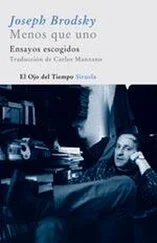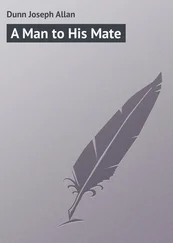‘Why doesn’t the Giant Ear have a champagne bottle?’
‘You know why,’ he said, with a conspiratorial smile. ‘The Director hates the search for extraterrestrial intelligence. He says it is not science. He really hates it. The radio astronomers here have been begging him to let them search for signals of intelligent life. But he is not going to allow that.’
‘I know, I know,’ she said, almost dreamily. ‘I wonder why he is so adamant about these things?’
‘The heavens speak very softly to the Earth, Madam,’ Ayyan said. ‘A mobile phone left on the Moon would be the third clearest radio signal in the entire sky. So you can imagine how easily the gadgets we use can interfere with radio telescopes. A passing car’s radio could start wild rumours of alien contact. So the Director thinks it is an imperfect way to search for aliens. Also, he does not think aliens are in the habit of sending signals.’
‘You know a lot, Ayyan,’ she said, with an honest smile.
‘I am just a small man, Madam, who picks up this and that through the great things that people like you do.’
Her nipples, he observed, had hardened in the air conditioner’s draught.
After he left, Oparna sat by the desk and looked blankly at the walls. She sat for hours like that, with nothing to do. She felt in her heart an old nameless sorrow. That same melancholy of a twilight rain in a deserted street. She felt stranded. Five years ago, she would have wept like a fool.
She went up to the porch for respite. She stood behind a fat beam and lit a cigarette. The half-naked gardener who was watering the lawn stared. A few men who were passing by, discussing the Möbius Strip, fell silent.
‘Yes, yes, stare at me. You’re right. I smoke. I must be a whore.’
The stares would always follow her here and she would grow to accept that she was in the world of men. She would learn to laugh at things that did not make her laugh. She would smile when Jana Nambodri said, ‘We have been seeking beauty in physics, but it looks as if it has come to Astrobiology.’ And she would smile when she learnt that the ladies’ rest-room on the third floor was called Ladies and the men’s was called Scientists. She would endure the men who inescapably fell towards her in the corridors and gave her guidance she never sought. She would try to pass through the long corridors of this place like a shadow, and she would fail every day.
She took one long drag and threw the cigarette butt, and felt a bit manly as she squashed the stub with her foot.
ARVIND ACHARYA LIKED the brooding hum of the air conditioner. It reminded him of the faint drone that was once speculated here to be the sound of the early universe. He was listening to the hum intently and reading another report on the red rains over Kerala. Ayyan Mani walked in holding a bunch of fax messages.
‘Dr Nambodri is here,’ he said, setting the papers on the desk. He always spoke in Tamil to the Director because he knew it annoyed him. It linked them intimately in their common past, though their fates were vastly different. Ayyan’s dialect, particularly, almost always distracted Acharya. It reminded him of the miserable landless labourers, and their sad eyes that used to haunt him in his childhood when he watched the world go by from the back seat of a black Morris Oxford.
Acharya put the Red Rain papers on the table and placed an irregular black stone on the material. ‘Send him in,’ he said. He leaned back in his chair and awaited the simple duel that he would win. Jana Nambodri entered looking more cheerful than the circumstances allowed.
‘So you are on for dinner tonight?’ he asked, as he sat across the desk from Acharya.
‘Of course, and you are serving fish this time,’ Acharya said. ‘Arvind, try to understand. We are married to hopeless vegetarians.’
‘I get fish in my house.’
‘OK, I’ll try,’ Nambodri said, and, as casually as he could, ‘The Seti conference, Arvind. Remember? Jal has been invited to Paraguay for the Seti conference.’
‘Ah, the Search for Extraterrestrial Intelligence in Paraguay,’ Acharya said, with a soft chuckle. ‘Jana,’ he said, turning serious, ‘is there any evidence that Paraguay actually exists?’
‘What do you mean?’
‘Do you know anybody from Paraguay?’
‘No.’
‘Nobody does.’
‘But somehow I do believe Paraguay exists,’ Nambodri said.
‘I gather they are not sponsoring his trip? We have to pay?’
‘Yes, but it is important that he goes.’
‘We can’t afford it,’ Acharya said. He lifted a pen from one holder and put it in another.
Nambodri expected this. This man was a stingy bastard these days. He was saving every rupee for the Balloon Mission. The men looked at each other with the comfort of an old friendship and with the strains of a dispute that was threatening to become destructive.
‘It’s all right,’ Nambodri said. ‘It’s your decision. But Arvind, I came here to talk about the Giant Ear.’
Acharya let out a soft groan.
But Nambodri persisted. ‘We are getting a lot, a lot of requests from radio astronomers all around the world for the Giant Ear,’ he said. ‘You have to seriously consider the matter. You have to let the Giant Ear search for alien signals. Even the astronomers in our Institute are unhappy with the ban.’
‘I am not going to let anyone use the Giant Ear for nonsense,’ Acharya said, and he looked around the room calmly.
‘Universities have approached me with very attractive usage fees,’ Nambodri said, somewhat desperately, though he had intended to be politely strong.
‘We are not in it for the money. We are scientists,’ Acharya said.
‘But Arvind, we need funds.’
There was a reason why Nambodri used the word ‘funds’. In the Institute, they looked down upon money. But they respected funds.
Acharya inhaled deeply. He did not like the persistence of other men. He said, ‘Do you remember the time when all of us thought robots would change the face of the Earth? Scientists said robots would do this, robots would do that. But they didn’t do much. Jana, do you know why robots failed? Robots failed because man built them in his own image. The first-generation robots were anthropomorphic. Because man was obsessed with man. Now the most successful robots, say on an auto assembly-line or in an operating theatre, do not look like humans.’
‘What are you trying to say, Arvind?’
‘The human search for aliens is now in the imbecilic stage that robotics once was,’ Acharya said, an ominous edge in his voice. ‘I will not support people who presume that somewhere, far away in space, there could be beings so human that they will build machines that will send us a radio signal. Man is not searching for aliens. Man is searching for man. It’s called loneliness. Not science. The universe is simply too vast, and we know too little about consciousness, to invest in a quest that rests on a narrow concept of life. Scientists want to search for alien signals because that’s what gets them publicity. They are like Jesus Christ.’
‘Jesus Christ?’
‘Yes. They are exactly like Jesus Christ. You know that he turned water into wine.’
‘I’ve heard that story.’
‘From the point of view of pure chemistry, it is more miraculous to make wine into water than water into wine. But he did not do that. Because if he had gone to someone’s house and converted their wine into water, they would have crucified him much earlier. He knew, Jana. He knew making water into wine was a more popular thing to do. Searching for extraterrestrial signals is like that. It is more glamorous than searching for pulsars. Lay people love it. Journalists love it. A more meaningful thing to do is to investigate the stratosphere for evidence of microscopic aliens that have come riding on meteorites.’
Читать дальше












